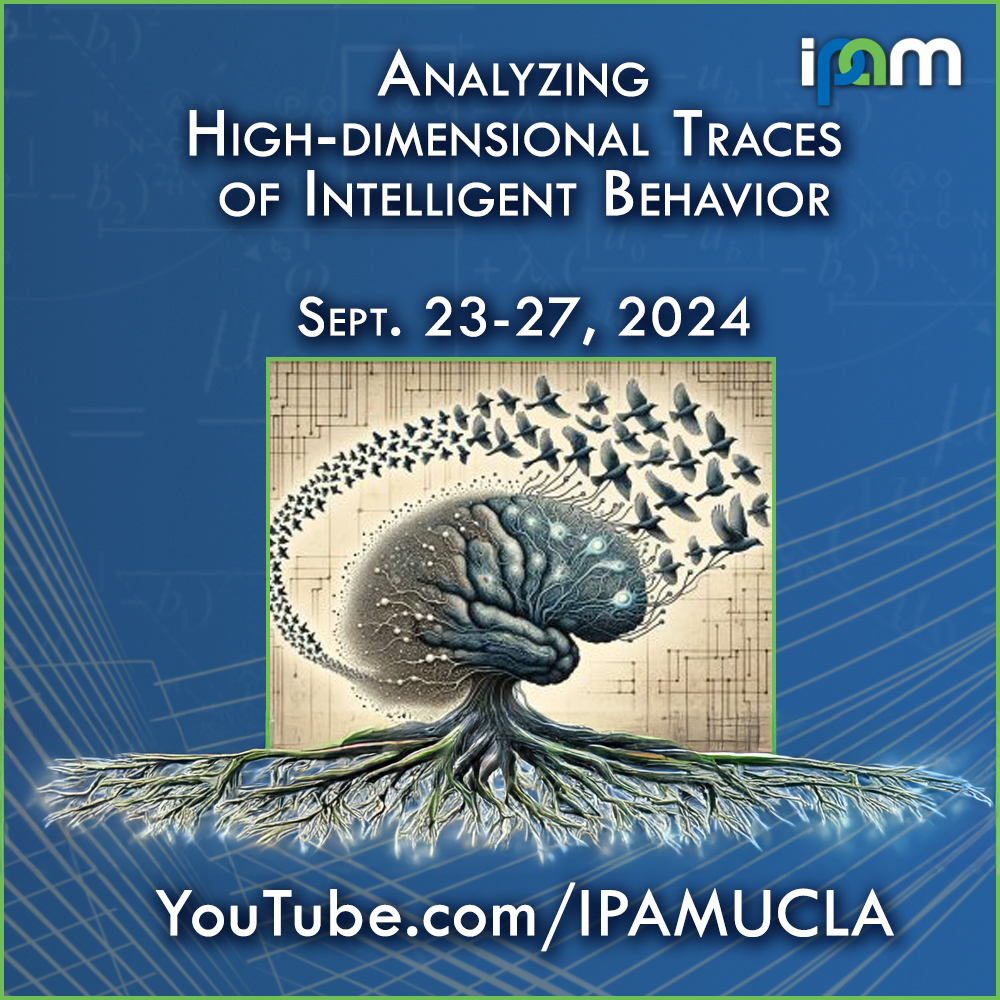Peter Todd - Traces of search in space and mind - IPAM at UCLA
Presenter
September 23, 2024
Abstract
Recorded 23 September 2024. Peter Todd of Indiana University Bloomington presents "Traces of search in space and mind" at IPAM's Analyzing High-dimensional Traces of Intelligent Behavior Workshop.
Abstract: People and other organisms must adaptively trade off between exploring and exploiting their environment to obtain the resources they need. This applies to whatever space they are searching, including spatial environments, such as looking for patches of food, and information environments, including seeking concepts in memory. When searching semantic memory, people’s behavior often appears analogous to foraging for food in space: they produce concepts clustered in local patches (i.e. regions of semantic space) and switch to new patches when old ones become less productive, much like animals exploiting a food patch and leaving to search for a new one when the first is depleted. Testing memory foraging models requires determining when people make deliberate switches, often via similarity metrics that reveal jumps in semantic space. But unlike in physical space, people also often seem to make such semantic jumps without switching between patches, instead creating an extended fluid patch that links distant concepts by some category that overlaps both (e.g., dog, cat, tiger, zebra, giraffe), where similarity metrics can erroneously indicate switching. Thus while some similar evolved underlying mechanisms may be used to address the explore/exploit tradeoff in each domain, high-dimensional spaces can yield traces of search behavior that call for different types of analysis. In this talk, I will describe how we are studying connections between spatial search and cognitive search in a range of spaces and a range of intelligent agents.
Learn more online at: https://www.ipam.ucla.edu/programs/workshops/workshop-i-analyzing-high-dimensional-traces-of-intelligent-behavior/?tab=overview
